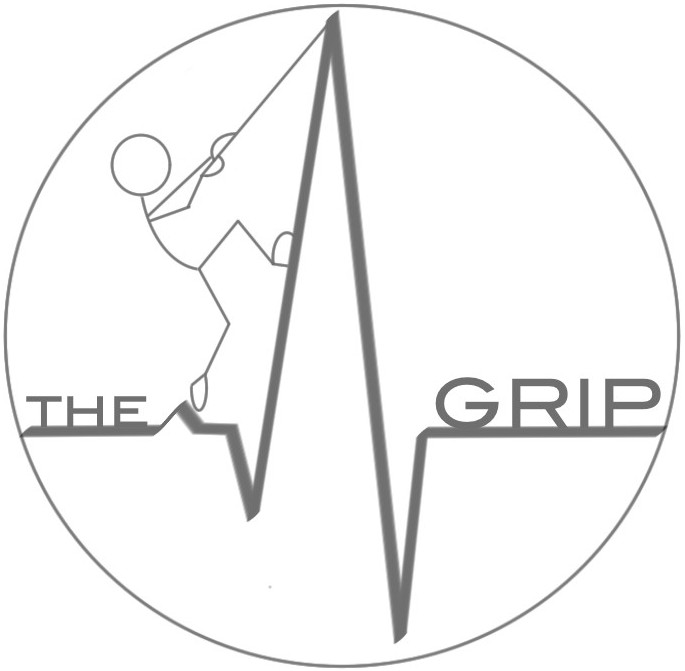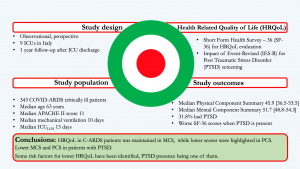Quality of Life in COVID-Related ARDS Patients One Year after Intensive Care Discharge (Odissea Study): A Multicenter Observational Study
Here the results of the national multicenter study on the quality of life of COVID-19 patients one year after ICU discharge: around 20% of the enrolled patients were from Pavia!
Full text here on the Journal of Clinical Medicine
Abstract
Background: Investigating the health-related quality of life (HRQoL) after intensive care unit (ICU) discharge is necessary to identify possible modifiable risk factors. The primary aim of this study was to investigate the HRQoL in COVID-19 critically ill patients one year after ICU discharge. Methods: In this multicenter prospective observational study, COVID-19 patients admitted to nine ICUs from 1 March 2020 to 28 February 2021 in Italy were enrolled. One year after ICU discharge, patients were required to fill in short-form health survey 36 (SF-36) and impact of event-revised (IES-R) questionnaire. A multivariate linear or logistic regression analysis to search for factors associated with a lower HRQoL and post-traumatic stress disorded (PTSD) were carried out, respectively. Results: Among 1,003 patients screened, 343 (median age 63 years [57–70]) were enrolled. Mechanical ventilation lasted for a median of 10 days [2–20]. Physical functioning (PF 85 [60–95]), physical role (PR 75 [0–100]), emotional role (RE 100 [33–100]), bodily pain (BP 77.5 [45–100]), social functioning (SF 75 [50–100]), general health (GH 55 [35–72]), vitality (VT 55 [40–70]), mental health (MH 68 [52–84]) and health change (HC 50 [25–75]) describe the SF-36 items. A median physical component summary (PCS) and mental component summary (MCS) scores were 45.9 (36.5–53.5) and 51.7 (48.8–54.3), respectively, considering 50 as the normal value of the healthy general population. In all, 109 patients (31.8%) tested positive for post-traumatic stress disorder, also reporting a significantly worse HRQoL in all SF-36 domains. The female gender, history of cardiovascular disease, liver disease and length of hospital stay negatively affected the HRQoL. Weight at follow-up was a risk factor for PTSD (OR 1.02, p = 0.03). Conclusions: The HRQoL in COVID-19 ARDS ( C-ARDS ) patients was reduced regarding the PCS, while the median MCS value was slightly above normal. Some risk factors for a lower HRQoL have been identified, the presence of PTSD is one of them. Further research is warranted to better identify the possible factors affecting the HRQoL in C-ARDS.

